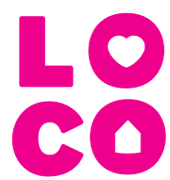LOCO BC conducted research on consumer support for local in the fall of 2022, to provide a nationwide snapshot of consumer patterns and preferences. After an extensive literature review, we surveyed more than 850 Canadians in all regions, and people of all genders, ages and incomes, and conducted several follow-up interviews.
We found that:
- Local businesses are still dominating in-store purchasing, capturing 54% of spending
- Non-local purchasing dominates online purchasing, capturing 56% of spending
- Consumers make local product purchases at multinationals - 20% often, and 55% sometimes
- Annual leakage to multinationals from consumer non-local purchasing in BC alone is estimated at $53 Billion; in Canada, leakage is $389 Billion

Consumers are always weighing a multitude of factors when making purchasing decisions. Given record inflation and high-interest rates, we expected that price would be the top consumer criterion, however, product quality was reported as most important in all cases. Availability is another standout purchasing criterion, perhaps not so much of a surprise following several years of supply chain disruptions. The single top attribute that consumers consider when purchasing reported are product quality, price, free shipping, better service, and availability. When we assess the top two reported attributes, we get a similar list but reordered: quality, availability, price, better service, and free shipping. The single top in-store attribute that consumers consider when shopping are product quality, price, better service, availability, and locally grown. Although many of the local attributes are not in the top five purchasing criteria, consumers report that they place importance on local products, local ownership, and company values. We can conclude that if other attributes like quality and availability are similar, local attributes like local production and ownership rise in consumer weighting. A very small percentage of consumers attributed no importance to local attributes like "locally grown", "locally made" or local ownership of the business.

Consumers reported that the businesses they consider most local are farmer's markets, independent grocers, independent retailers, independent restaurants, and businesses owned within the city/town/region. More so than provincially or Canadian-owned businesses, consumers consider locally owned franchises and any nearby grocers to be most local, perhaps due to a brick-and-mortar presence in their community, providing essential services and contributing local jobs and taxes.
Some differences can be seen in support for local across different regions, age groups, and income brackets. We found that:
- BC consumers report some of the highest support for local in-store (61% compared to the average 54%), followed by the Prairies (52%) and Quebec (50%).
- Quebec (49%), Northern Canada (48%), and the Prairies (47%) had the highest support for local online. Atlantic Canada (39%) had the lowest support for local online, perhaps due to the lack of a local online market
- The BC population is biased towards local by some of the survey results. When we removed the "localists" who we suspect are biased towards local from the whole BC data set, we found that the "general population" of BC consumers reported the lowest support for local businesses online of any region in the country (35%)
- Boomers (66%) and Gen X (59%) have above-average (55%) support for local businesses in-store; Boomers are also more likely to support local businesses online (49% compared to the average of 45%)
- Gender wasn't much of a factor in shopping patterns or preferences, however, those identifying as female reported slightly less monthly consumer spending, which is likely to make them slightly more price sensitive
- "Localist" consumers are much more likely to value local attributes more highly than factors like availability and price; they place a much lower value on price even when their income is similar
Local businesses are still dominating the in-store market, as consumers place high value on product quality, availability, and better service, several areas in which local businesses can really shine. Online, non-local businesses are capturing more of the market, as local businesses that have adopted e-commerce still face significant challenges competing with the marketing budgets and online resources of multinationals and online giants. There is an opportunity for them to capture more of the market online with better support for local business e-commerce and digital marketing, as well as consumer education on supporting local online in a similar way that they have shown to value in-store. Local businesses can help themselves and the local market by promoting their local attributes and company values, and by being transparent about sourcing and employment practices. All businesses can identify and promote local products online and in-store, to help consumers identify locally grown and made products wherever they shop. Download the report.





